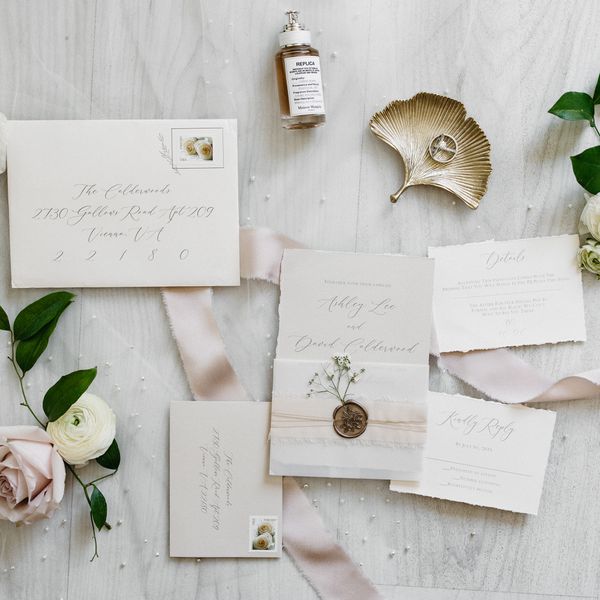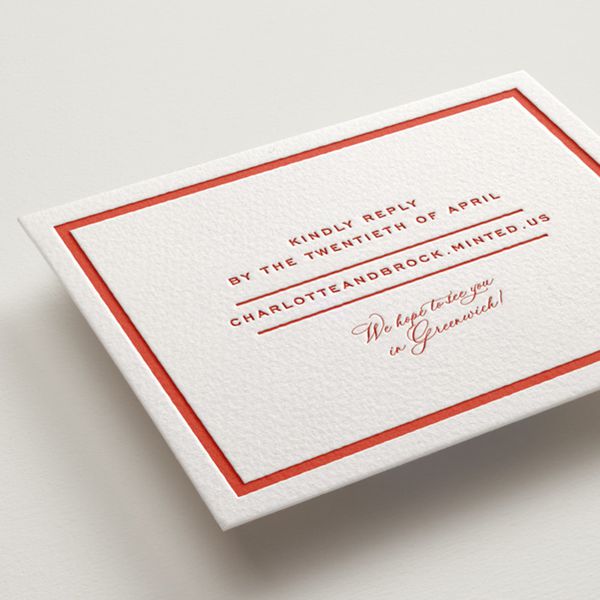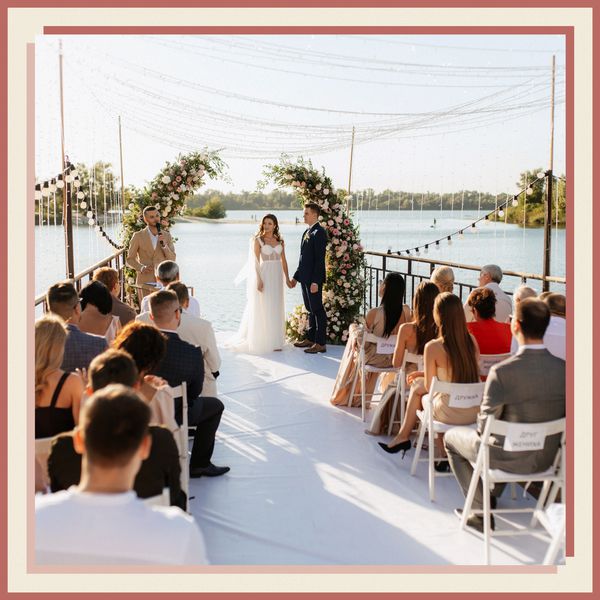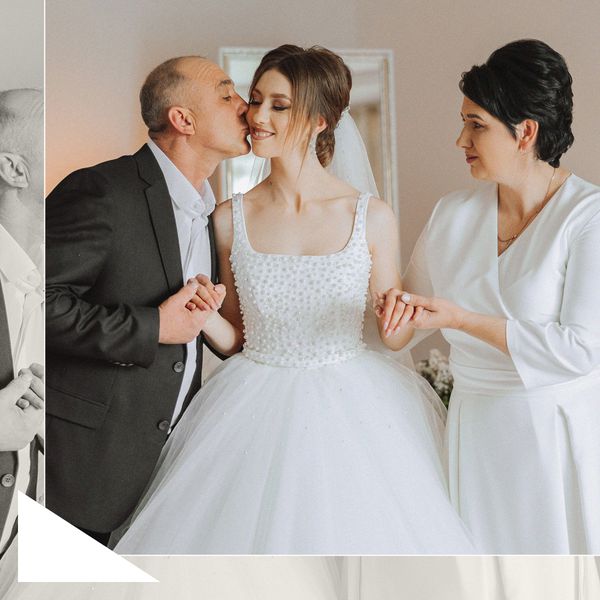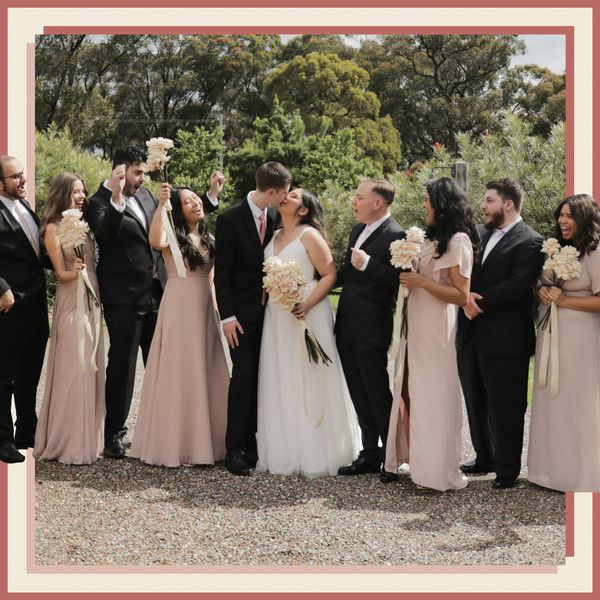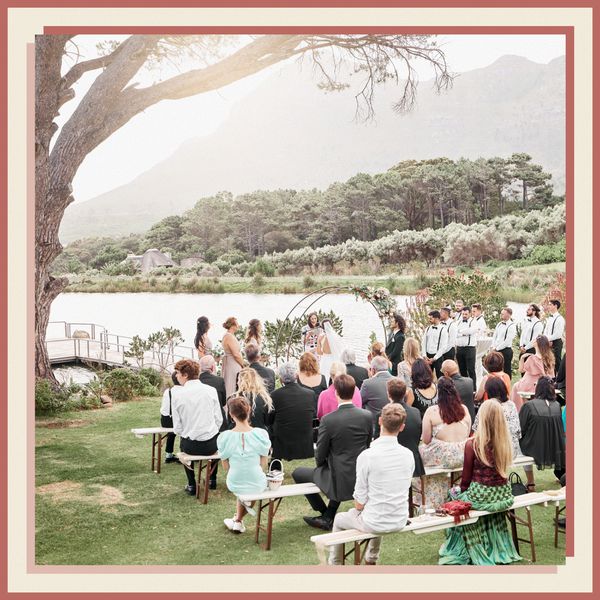
sturti / Getty Images
There’s the wedding, and then there are the months—if not years—of planning and events leading up to it. As the mother or father of the bride or groom, you're likely excited to dive into all of the aspects of the big day—from weighing in on the bride's gown to hiring the caterer and organizing the rehearsal dinner. And while there's nothing wrong with showing a little enthusiasm for the impending nuptials of your child, it's easy to get carried away—and potentially go a bit overboard. For example, while you may be eagerly anticipating having the chance to send along the invitation to all of your closest friends, consider that your child and their partner may not share your same preferences when it comes to the guest list—whether due to venue restrictions or their desire to host a smaller affair.
"Their dream venue may have capacity restraints or—on the opposite end of the spectrum—high guest minimums, so the first thing to always lead with is a discussion on budget, guest list and the desires of the couple themselves," says Oniki Hardtman, a leading destination wedding planner. Ultimately, communication is always key. By discussing your expectations and personal preferences with your child and their partner early on in the process, you'll avoid making unnecessary blunders—and potentially harming your relationship.
Meet the Expert
- Oniki Hardtman is the founder and creative director of Oh Niki Occasions, an award-winning boutique destination wedding planning and design firm.
- Jacqueline Whitmore is an etiquette expert, author, and the founder of the Protocol School Palm Beach.
- Dani Blasena is the owner and creative director of HauteFêtes, a full-service event design and planning studio specializing in luxury destination weddings and multi-day celebrations in the United States and abroad.
- Elaine Swann is an etiquette expert, author, and the founder of the Swann School of Protocol.
Below, etiquette and industry experts share the most common errors parents make over the course over the wedding-planning process—and offer advice and tips on how to both avoid and fix these missteps.
Insisting on Adhering to Customs
Even though you did it one way when you tied the knot, that doesn't necessarily mean that your child will want to do it the same way. "A mistake I often see parents make is sharing general opinions where they are not asked for or warranted," Hardtman says. "This can be on any number of items, [including pushing] traditional 'wedding' customs that the couple may not be interested in doing 'just because,'" Hardtman says. "Be sure to always keep in mind that this day is about two people and not everything is going to be a group decision." To avoid such a blunder, she suggests sharing the aspects you would like them to consider far in advance of the big day. "This way, they know where you heart is before any major decisions are made, and they have an understanding of where your wallet is if those wishes are tied to a monetary decision, too," she adds.
Oversharing on Social Media
It may seem obvious, but be careful not to share crucial details about the wedding before the big day—especially on social media. "I’ve seen parents share on Facebook, 'This is the one, my daughter found her dream dress,'" says Elaine Swann, an etiquette expert. While getting excited is understandable, it’s important to view the experience through the lens of the bride and groom above all else. Swann says parents should ask themselves, "Is this a memory for me or my child?" When in doubt, assume that sharing details on social media is off-limits or simply ask before posting. And remember that once the big day is behind you, you can share to your heart’s content.
Over-Inviting Guests
"One of the most common mistakes that I often see parents make is that they feel they have free reign on inviting who and however many guests that they would like," Hardtman says. "While this may be true to some degree if they are paying for the wedding in its entirety or making a large financial contribution to it, it should always be a conversation with the couple." At the end of the day, the soon-to-be newlyweds are the ones tying the knot—and should be able to dictate who attends.
To avoid any issues in this area, Dani Blasena, the owner and creative director of HauteFêtes, recommends taking the maximum number of attendees a venue can comfortably fit and reducing that by 10 percent. "Of that total number, parents can then be allocated 20 to 30 percent of the guest list total, with the remainder being couple-invited guests," she says. That way, parents are given a generous amount of invites that they can decide what to do with—when those run out, that’s it.
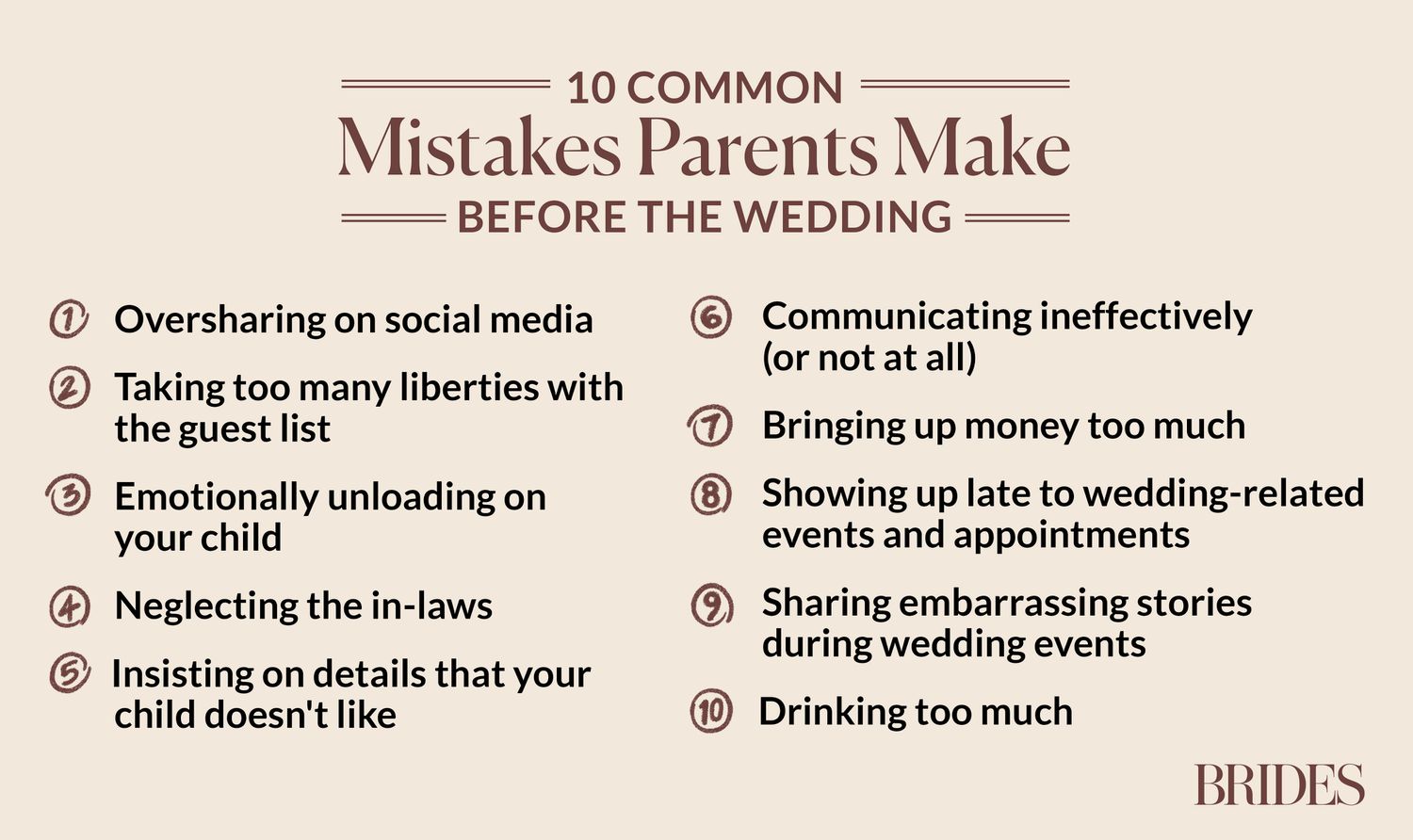
Brides
Increasing the Emotional Overload
Planning a wedding can be stressful or bring out heightened emotions—and not just for the duo getting married. "Parents might project their own anxieties or unresolved issues onto the couple, leading to unnecessary stress," says Jacqueline Whitmore, an etiquette expert. This may include calling more frequently, fretting about certain details, or even imposing feelings about other family members onto the to-be-weds. Whitmore encourages couples to establish boundaries early. As a result, be prepared to hear and respect them. "Communicating these clearly to parents is crucial in setting expectations," she says.
Neglecting Your Child’s Partner’s Family’s Traditions
It’s common for parents to focus on their own wishes or the family traditions that mean a lot to them on a personal level leading up to the wedding, but if you have tunnel vision with your own family’s rites and rituals, it’s easier to forget that there’s another group of people who also need to be factored into the plans: your child’s future in-laws and their extended clan. "Sometimes, parents may not consider the needs and traditions of the other partner’s family, which can create tension," says Whitmore. Remember that there are typically two sets of parents (if not more!) at a wedding, and it’s important for everyone to feel acknowledged and considered.
Insisting on Certain Details
"There’s a lot of pressure around weddings, and family members will often share their opinions on what should or shouldn’t be done or included on the big day," says Blasena. It’s easy for couples to get caught up in trying to please everyone and compromise on what they really want. Ultimately, it might really mean a lot to you to see your daughter or future daughter-in-law in your lace veil, but Blasena suggests acknowledging that she might include it in a different way—one that feels more genuine to her, such as wrapping it around her bouquet. At the end of the day, the wedding is about your child and his or her partner, and the details of the wedding should reflect their personal tastes and traditions.
Lack of Communication
While some parents love to give opinions, others aren’t forthright enough. "Sometimes, they don’t ask questions or make inquiries," Swann says. "They take a backseat but do so begrudgingly, and that can cause a rift later on." Parents may become frustrated that couples aren’t asking about their desires or letting them do more, whether that be including certain traditions or guests. To avoid post-wedding resentment, Swann says the best thing parents can do is speak up. "By opening lines of communication now, you’re encouraging openness and the chance to give input," she says.
:max_bytes(150000):strip_icc()/GettyImages-1319914381-93fa70c700b94b3e86973a84b68c3686.jpg)
Maskot / Getty Images
Bringing Up Money
Parents are typically the biggest financial contributors to their child’s wedding, but it can get tricky when one set of parents disproportionately pays for more and feels entitled to making more decisions, says Blasena. "Just because one party may be paying more doesn’t mean they have veto control over all ideas," she explains. There’s certainly nothing wrong with helping out with costs of the wedding, but that doesn’t mean the day belongs to anyone other than the couple. "So that everyone feels involved and valued, let couples draw up a working budget and ask how much each family is willing to be involved," says Blasena.
Showing Up Late to Wedding-Related Events
There are so many moving parts leading up to the wedding, and timing is crucial so that everything is pulled off without a hitch, says Blasena: "When family members show up late to their hair and makeup appointment or arrive late to the church, these can have consequences for the smooth workings of the wedding day." While being late on the wedding day itself might feel like the most egregious mistake, your child will likely find it just as stressful if you aren’t prompt during the lead-up, as well, whether that’s for a wedding dress fitting, tasting appointment, or bridal shower.
Combat lateness is with a well-organized schedule, Blasena says. And, if you’re prone to being late, give yourself an additional 15 to 30 minutes of wiggle room to account for things like traffic or even wardrobe malfunctions. The wedding day, rehearsals, and showers are so important to the bride and groom—and you want to be a relief from stress, not the cause.
Sharing Embarrassing Stories or Details With Other Family Members
There are plenty of opportunities to celebrate the fact that your child has officially grown up during the wedding-planning process, but that also leaves plenty of room for accidentally oversharing or divulging embarrassing stories from their youth. In their excitement (or after one too many drinks) parents may simply reveal things that they shouldn’t, no matter how cute or funny they might find it, says Swann. She says the best thing for couples to do is to have a conversation with parents beforehand if they suspect this might become an issue. Parents, if your child comes to you with these concerns, don’t get defensive—hear them out, dialogue about stories you’d love to share during key moments (like during a toast), and then stick to the plan.
:max_bytes(150000):strip_icc()/GettyImages-1317588082-904f5003a82a4e38bf2708b7d160bd1a.jpg)
Anchiy / Getty Images
Drinking Too Much During Pre-Wedding Events
The wedding-planning journey is particularly celebratory—and because of this, alcohol is regularly part of each touchpoint in the process. As the parent of the bride or groom, however, it’s important to drink responsibly and appropriately at every pre-wedding party (and, of course, on the big day itself). "Inappropriate drunkenness happens even with the best intentions," says Blasena. If you plan on having a few drinks at an engagement party or bridal shower (or during a nice dinner with your child’s future in-laws), make sure to eat and monitor your alcohol intake. "If you’re inclined to party hard, plan for it ahead of time," adds Blasena. That way, you can enjoy your child’s wedding journey "without any memorable mistakes."




